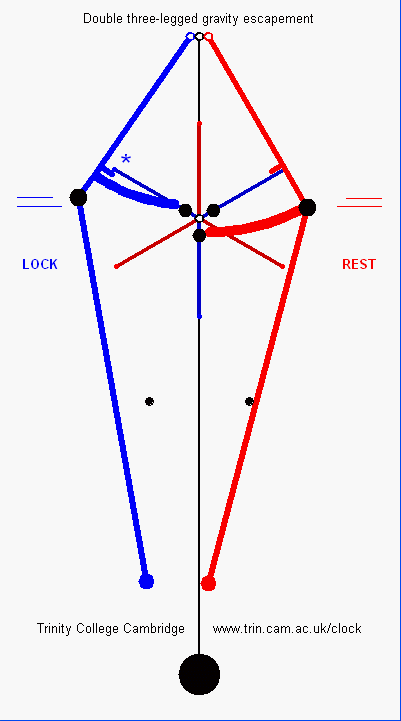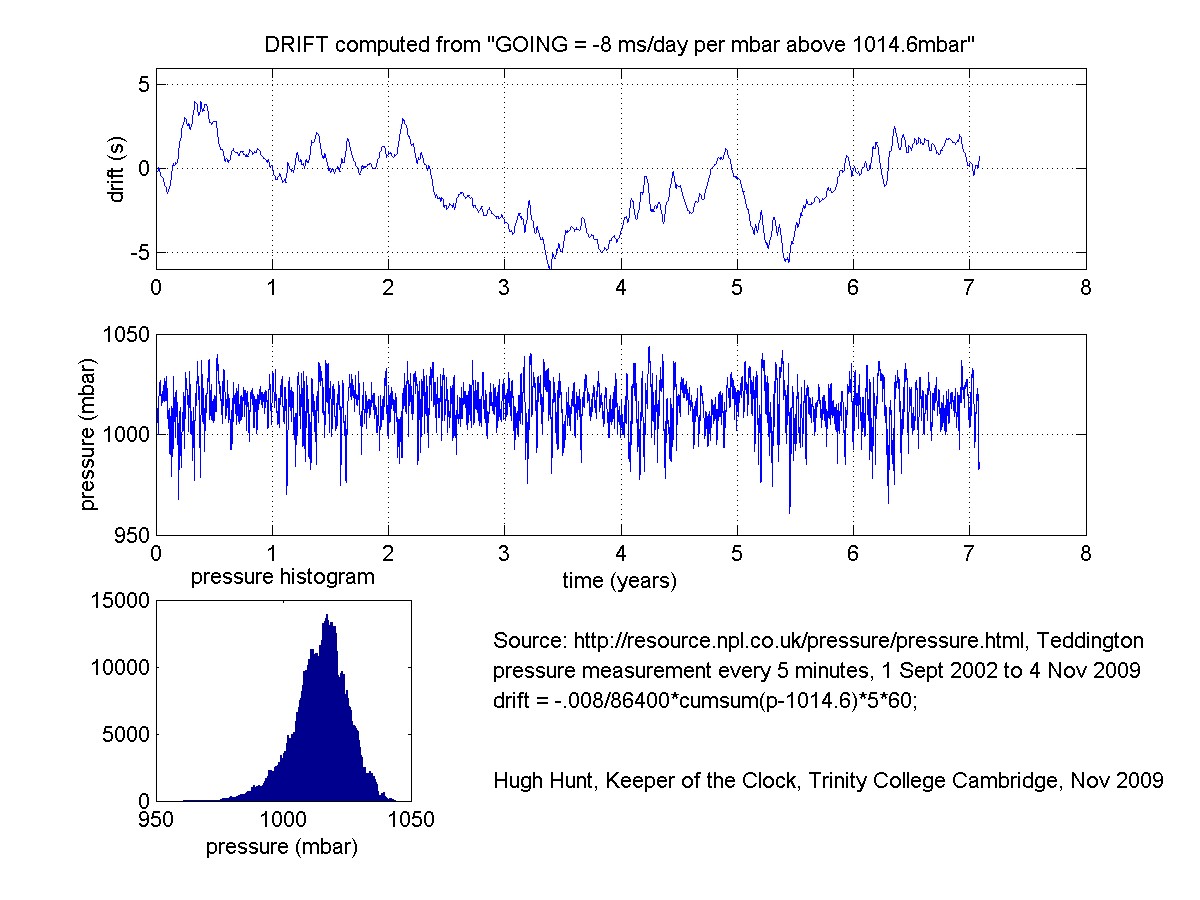
|
THE TRINITY CLOCK |


|
TheoryPDF extracts from Rick Lupton's MEng project report. There is a great deal of interesting information here. Read on!
Non-pdf pages (may not work on all browsers): Barometric pressure compensationWe've installed a barometric compensator: theory of a barometric compensatorWe found by measurement that barometric pressure affects "going" by -8ms/day per mbar of pressure. It is possible to simulate the effect of this by examining the history of pressure variation in the UK (Teddington) which is available online. The graph below shows how Drift would have varied over the last 7 years supposing that Barometric Pressure were the only factor. This suggests that the likely range of variation of a well-adjusted clock is about +/- 4 seconds. The skew histogram is interesting, showing greater extremes of low pressure than of high pressure. Hence we'd expect to see episodes of the clock speeding up rapidly more often than sudden slow-downs.
|
